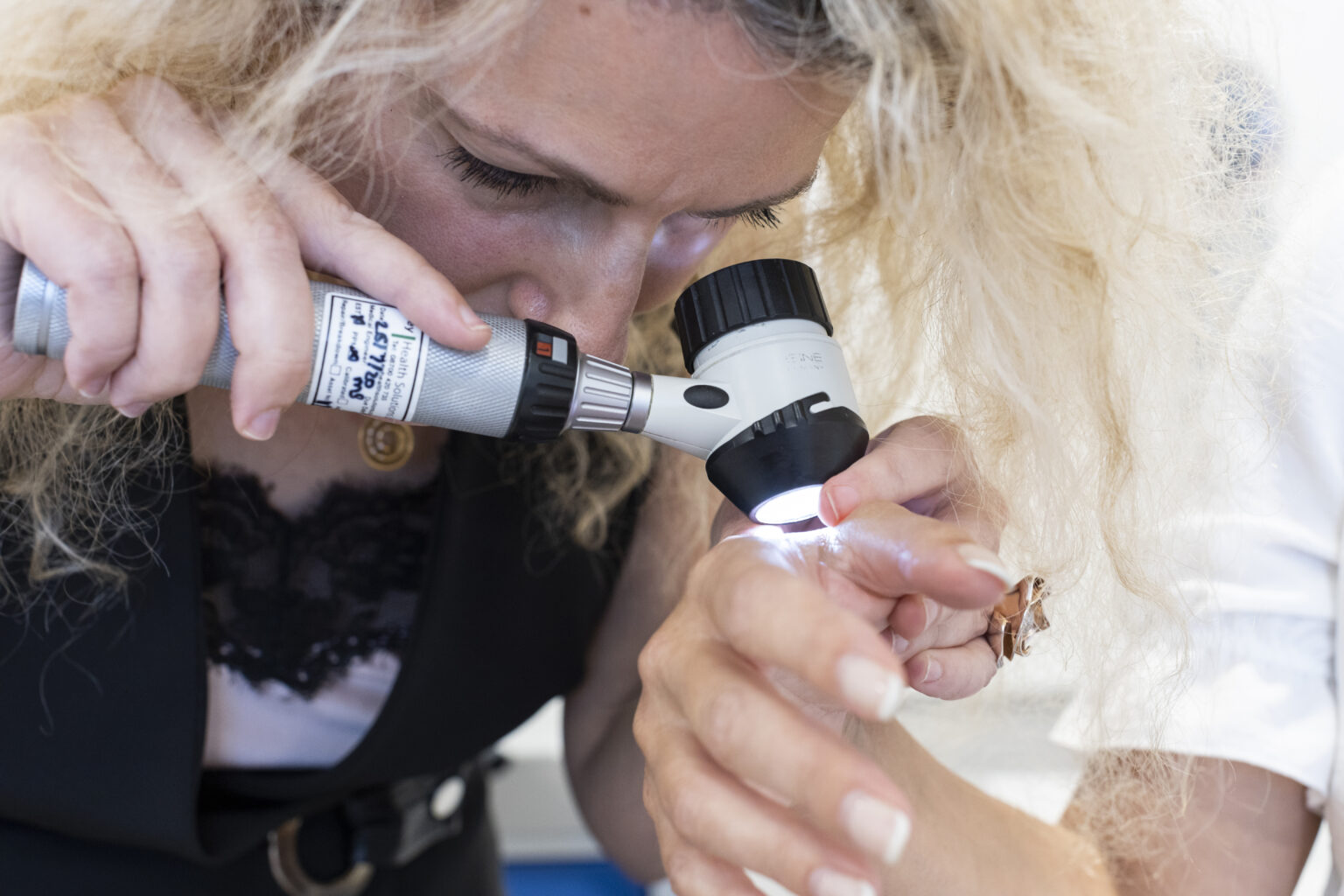Contact number: 020 7806 4060
What is private skin lesion removal?
Skin lesions vary widely in appearance and can occur anywhere on the body. They might be present from birth, like moles, or develop due to age, sun exposure, or other factors. While many skin lesions are benign, removal and analysis are crucial steps for those that are suspicious or problematic.
If you’ve noticed a change in a mole’s appearance, a new growth, or have a lesion that’s causing discomfort, our specialists are here to help. We offer a range of treatments tailored to your specific needs, ensuring the best possible outcomes. The cost of skin lesion removal will be a bespoke price depending on the type of skin lesion removal you need.
At St John & Elizabeth Hospital, we understand the anxiety that can come with the discovery of a skin lesion. Our dedicated team is on hand to provide reassurance, expert advice, and the highest standard of care.
Consultants who perform Skin Lesion Removals
How Much Does Private Skin Lesion Removal Surgery Cost?
from £695*
Skin Lesion Removal costs From £695* at St John & St Elizabeth Hospital.
*The price shown is an estimated guide price for related costs associated with your treatment, from admission to discharge. This price will vary depending on your surgical needs. This guide price does not include the cost of consultation, diagnostics or the surgeon or anaesthetist free.
How to pay for your treatment
If you’re… paying for yourself
Did you know you don’t need private medical insurance to come to St John & St Elizabeth Hospital? As a self-pay patient, you can access safe, outstanding quality health care at times to suit you.
For scans and tests, as well as to see most consultants, you’ll still need to be referred by a medical professional like your GP, but as a self-pay patient, the process is more straightforward. You won’t need authorisation from an insurance provider, and you’ll have greater choice of consultant and appointment times.
If you’re… insured
St John & St Elizabeth Hospital is approved by all major medical insurance companies. If you have a personal private health insurance policy, or your company provide it for you, you can use it to pay for your care from your initial consultation through to treatment, surgery and aftercare such as physiotherapy. Not all private health insurance plans cover the same things. It’s very important to check exactly what you are covered for with your insurance provider.
Frequently Asked Questions about Skin Lesion Removal
Your journey begins with a consultation with one of our experienced dermatologists to discuss your medical history, the nature of your skin lesion, and the most suitable treatment options. Depending on the lesion’s type, size, and location, options may include minor surgery under local anaesthesia, laser treatment, or cryotherapy. Preparation may involve avoiding certain medications or applying a topical treatment as advised by your dermatologist. Our team will ensure you feel fully informed and comfortable with your treatment plan.
When you arrive, you’ll be welcomed by our friendly staff and guided through the final preparation steps, including a review of your medical history. For surgical removals, you’ll be taken to a treatment room equipped with the latest technology. Most procedures are performed under local anaesthesia, keeping you comfortable and pain-free throughout. Depending on the lesion, removal may involve excision with a scalpel, laser treatment, or cryotherapy.
Once the lesion is removed, immediate care is applied to the site to promote healing and minimise scarring. This may include stitches or a simple dressing depending on the method used. Our team will give you comprehensive aftercare instructions before you leave to ensure proper healing.
Recovery time varies depending on the removal method and the lesion’s size and location. Most patients can return to daily activities quickly, though we advise avoiding strenuous activity for a short time. You’ll receive tailored aftercare instructions, including wound care, signs of infection to watch for, and any necessary medications.
A follow-up appointment will be arranged to assess healing, review any histology results if the lesion was analysed, and discuss further steps if needed. We also offer guidance and treatments to reduce scarring. Our team remains available for ongoing support, questions, or advice on preventing future skin lesions.
- Keep an eye on any skin lesions for changes in size, colour, or shape. Early detection of changes can be crucial for effective treatment.
- Protect your skin from excessive sun exposure by using high-SPF sunscreen, wearing protective clothing, and seeking shade when the sun is at its strongest. UV rays can contribute to the development of skin lesions.
- Maintain a healthy skincare routine, including gentle cleansing and moisturising. Avoid harsh chemicals or treatments that could irritate skin lesions.
- Resist the urge to pick or scratch at skin lesions. This can lead to infection or scarring.

